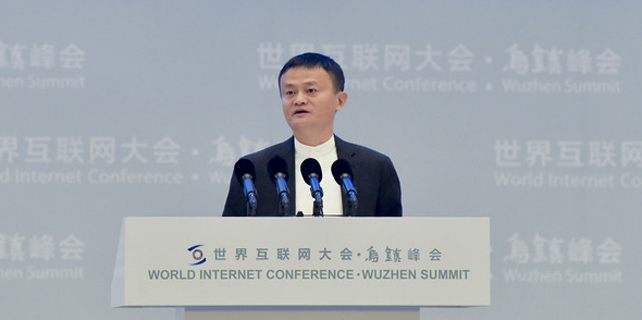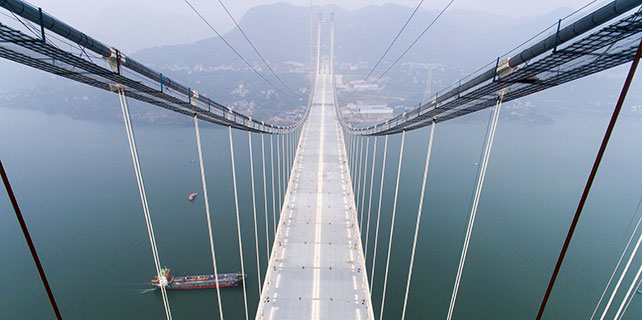APEC: Genuine collectivism and effective connectivity
Today, there are over 150 bilateral and multilateral free trade agreements in the APEC region. A joint strategic study has been undertaken on issues related to the realization of a Free Trade Area of the Asia-Pacific. Its participants have not yet agreed upon the optimal format and operational parameters of the FTAAP. However, they have already drawn the main conclusion that it is necessary to equally take into account the experience of all regional integration associations without exception, including the APEC Economic Community, the Pacific Alliance and the Eurasian Economic Union. For our part, we are convinced that only constructive interaction on a transparent and non-discriminatory basis to link these associations would allow to avoid the risks of crisis in the world trade aggravation and broader use of best regulatory practices.
The Russian initiative on the Greater Eurasian Partnership is primarily aimed at attaining these objectives. Its implementation is intended to harmonize the emerging Eurasian multilevel system of integration structures and to combine the potential of the interested Asian countries and in the future – of Europe as well. This means establishing cooperative relations on a bilateral and multilateral basis in order to find effective sources of growth, looking for new opportunities for the development and promotion of common standards for regulating trade and investment, as well as responding to major technological challenges.
We envisage an important role in the implementation of this initiative for the Eurasian Economic Union, which is steadily establishing itself as the leading mechanism of integration in Eurasia and is able to become a link between various processes and associations within the framework of the common trade and economic space.
The task of ensuring qualitative growth as a new standard for global progress is another priority on the regional agenda. Within the framework of the forum, it is solved in line with the implementation of the APEC Growth Strategy endorsed by the leaders in 2010. The document focuses on balanced, sustainable, inclusive, innovative and secure growth. The attention is concentrated on measures to promote equitable and comprehensive development, as well as the construction of a coherent, deeply integrated and interconnected regional community.
In this context, the improvement of transport and logistics infrastructure in the region should have an important role. Russia has a wealth of experience in ensuring reliable, continuous and cost-effective operation of global value chains and the compatibility of production and distribution networks. The geography should be taken into account as well – the shortest goods delivery routes between Asia and Europe pass through the territory of our country.
In order to make full use of its transit capacity, Russia has been consistently pursuing the policy of national transport infrastructure development. The government is supporting major projects of upgrading the Baikal Amur Mainline and Trans Siberian Railway. Development of the Far East port complex is underway. Infrastructure of Khabarovsk and Vladivostok airports is being improved with a view to turn them into major hubs of transcontinental air transportation. Active use of the Northern Sea Route may benefit business.
At the same time measures are taken to technologically upgrade border and customs services in order to enable much accelerated passing of the relevant procedures both for cargo, including large containers, and for passengers. We attach great significance to enhancing the safety of transport infrastructure, including through the use of the Global Navigation Satellite System (GLONASS).
Russia advocates implementing innovations in all domains. Vigorous technological progress, particularly in information and telecommunications technology and the emerging new markets require coordinated actions aimed at implementing effective structural reforms.
Russia proposed the concept of "electronic economy" at the Forum. This refers to a new technological pattern that goes beyond "digital economy" and "Internet economy". We believe time has come for the APEC to develop new decisions on such issues as regulation of electronic data sets, including classified information protection measures, development of legal and administrative framework for enhancing cross-border e commerce cooperation that would build people's trust in electronic space.
Our country supports the APEC efforts to develop human capital. We attach priority to this area of joint efforts aimed at strengthening regional connectivity. A favourable environment for the full realization of each person's creative abilities is an indispensable precondition for successful social and economic progress.
- Peruvian officials, residents pin high hopes on APEC meetings
- 2016 APEC Economic Leaders' Week kicks off in Lima
- Free trade still the priority for APEC
- APEC meeting vital to progress on Asia-Pacific free-trade zone, says Mexican expert
- APEC 2016: Chinese visitors to Peru rank No 1 in business, investment
- 2016 APEC Economic Leaders' Week kicks off in Peru
- Xi's attendance at APEC will promote regional economic integration: senior officials






















